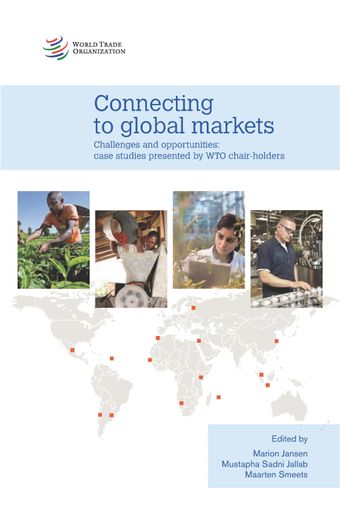- Home
- Books
- Connecting to Global Markets
- Chapter
The role of international economic law in addressing climate change

- Authors: Bradly J. Condon and Tapen Sinha
- Source: Connecting to Global Markets , pp 117-128
- Publication Date: February 2014
- DOI: https://doi.org/10.30875/ff2e6392-en
- Language: English
Low- and middle-income countries face supply-side constraints such as technical capacities, adequate hard infrastructure capacities, human capital (above all knowhow), access to adequate credit, and access to environmental goods and services that affect their capacity to address climate change and other environmental issues. This chapter discusses how the existing framework of international economic law may constrain the ability of low- or middle-income countries to overcome such supply-side constraints in order to address their, or their trading partners’, environmental concerns regarding climate change and be included in global value chains. We will consider what should be done from a legal perspective, what might be achieved, and the likely implications of international economic law for acquiring and implementing environmentally friendly technologies and financing climate change mitigation and adaptation.
-
From This Site
/content/books/9789287042460s013-c003dcterms_subject,pub_countryId-contentType:WorkingPaperSeries -contentType:Periodical -contentType:BookSeries -contentType:ReportSeries105


